One of my go-to hobbies when I have a few minutes is to browse the new research on prenatal nutrition.
As I’ve said many times before, this field of study is constantly evolving, so in order to bring you the most up-to-date information on eating for a healthy pregnancy, I pretty much have to keep my eyes on the research.
Today, I want to share a recent study that I highlighted in a research brief on Instagram. Of note, this was the FIRST EVER study to look at a paleo diet in pregnancy (published in November 2019).
Those who opt for a paleo diet in pregnancy face a lot of scrutiny due to lack of research. Though a paleo diet for pregnancy has differences from my “real food” recommendations, it has more similarities than conventional nutrition advice, by far.
First Ever Study on a Paleo Diet in Pregnancy⠀⠀⠀⠀⠀⠀⠀⠀⠀
The study in question looked at pregnancy outcomes in women who voluntarily followed a paleo diet in pregnancy vs. those who ate a “regular diet.”
It’s a small retrospective cohort study of two groups who ate a particular diet both prior to and throughout pregnancy with 76 participants in total:
- Group A ate a paleo diet (n = 37)
- Group B ate a regular diet (n = 39)
Both groups were considered “low risk” meaning the participants had a singleton pregnancy (not twins or multiples) and no prior indication of metabolic issues, such as diabetes, high blood pressure, high cholesterol, or BMI greater than 35.
The researchers also excluded those who had a low adherence to the diet or started paleolithic diet during pregnancy (in other words, they had to have been consuming a paleo diet before getting pregnant).
Definition of a Paleo Diet vs. a Regular Diet⠀⠀⠀⠀⠀⠀⠀⠀
There are some different definitions of paleo, but this study defined it as a diet “based on animal and uncultivated plant-source foods such as lean meat, fish, vegetables, fruits, roots, eggs, and nuts” and that excludes grains, legumes, dairy, refined sugar, and processed oils.
I personally disagree that a paleo diet is based on lean meats, since our ancestors made use of all the parts of an animal, including the fatty cuts, but this was the definition in the study at hand.
The researchers did not clearly define what constitutes a “regular diet,” however all participants in the regular diet group had “at least one dietary consultation regarding the standard recommended diet during pregnancy, based on evenly distributed meals comprising protein, carbohydrates, and fat. These recommendations outline daily carbohydrate consumption accounting for 45-60% of daily allocated calories.”
In other words, the regular diet group received conventional prenatal nutrition advice, which is high-carb, low-fat, includes ample quantities of grains, and recommends limiting animal-sourced foods.
Of note, the paleo group did not receive any dietary counseling during pregnancy.
Results of the First Ever Study on Paleo Diet in Pregnancy⠀⠀⠀⠀⠀⠀⠀⠀
Now this is a SMALL study and not a clinical trial, but the observations on the impact of a paleo diet in pregnancy are interesting nonetheless.
Glucose Challenge Test
The group eating a paleo diet had significant lower scores on the glucose challenge test, which is used to screen for gestational diabetes.
Anemia
The paleo group also had less anemia (as noted by significantly higher hemoglobin & ferritin levels).
Weight gain & birth weight
In addition, pregnancy weight gain and baby’s birth weight were lower, on average, in the paleo group. Unlike the glucose test and anemia, differences in prenatal weight gain and birth weight were not different enough to reach statistical significance (they were healthy, on average, in both groups).
No other differences were noted, including no difference in adverse neonatal outcomes.⠀⠀⠀⠀⠀⠀⠀⠀⠀
The author’s conclude:
“These results may indicate the favorable nature of this diet during pregnancy, and may even become more substantial in women prone to gestational diabetes.”
My Thoughts
The improved results on the glucose challenge test (aka the 50 gram glucola) are intriguing to me. I’ve written at length about the different options for screening for gestational diabetes (see Ch 9 of Real Food for Pregnancy), including how people who otherwise follow a lower carbohydrate diet may be at risk for getting a false positive on a glucose tolerance test.
In this study group, this phenomenon was not observed.
Now, a full dietary analysis was not provided in the study (remember, they were relying on self reported adherence to a paleo diet), so we actually don’t know if the paleo group ate low carb. A lot of people equate paleo with low carb, but that’s not always the case—there are carbs in many “paleo” foods, like sweet potatoes, winter squash, cassava, fruit, etc.
Also, the paleo group was eating this way before pregnancy. This is HUGE because you can significantly impact your overall blood sugar metabolism—and ultimately your risk for gestational diabetes—by adopting a healthier, more nutrient-dense diet well before pregnancy.
Other studies in non-pregnant adults have shown a metabolic advantage to a paleo diet, including lower blood sugar and insulin levels, improved cholesterol levels, and lower blood pressure.
Second, the reduced rates of anemia in the paleo group makes perfect sense. A paleo diet automatically includes ample heme iron from animal foods, which is the best absorbed form of iron. Animal foods come with complimentary nutrients that work synergistically to reduce the risk of anemia, like vitamin B12 and preformed vitamin A (retinol).
Also, a paleo diet limits the intake of dietary factors that inhibit the absorption of iron, such as the calcium and casein in dairy products and the phytic acid from grains and legumes.
On a personal note, I was able to avoid anemia in both of my pregnancies without the use of iron supplements. This was all thanks to prioritizing iron-rich foods in the diet (and likely from starting my pregnancy with good iron stores from over a decade of eating an omnivorous diet).
Third, reduced weight gain in the paleo group is akin to what I’ve observed in clinical practice. Many studies have documented a reduced rate of weight gain and total gestational weight gain among pregnant participants who consume a lower glycemic index diet and/or those who eat more unprocessed foods. I’ve seen this first hand time and time again.
By excluding refined grains and sugar from the diet, a paleo diet is almost automatically a low glycemic index diet (unless the person is eating copious amounts of things like dried fruit or honey). At the very least, a paleo diet is probably lower on the glycemic index than a conventional prenatal diet.
Limitations of this Study
As mentioned, this was a small retrospective cohort study, not a large clinical trial.
For those not familiar with this type of study, a retrospective cohort study looks at specific outcomes between two similar groups of participants who vary by a certain characteristic. In this case, the participants were all low risk, healthy pregnant women whose primary difference was the type of diet consumed before and during pregnancy.
These studies are relatively inexpensive and a good start for making a case for additional studies, however they are not nearly of the same caliber as a clinical trial. There are many variables that may confound the results. For example, in this study, it’s possible that the participants who consume a paleo diet are likely to be more health conscious than the general public (i.e. they may be more likely to exercise regularly and to take nutritional supplements). The study did not control for socioeconomic status of physical activity.
In addition, this study relied on self-reported dietary intake, which is not always accurate, especially when people are asked to recall their intake from weeks or months ago. The research team attempted to control for this by excluding data from participants if they reported 20% or more deviation from a paleo diet.
Nonetheless, even with limitations, this study sets the stage for future research.⠀⠀⠀⠀⠀
I’m hopeful that I can someday run a clinical trial comparing pregnancy outcomes of a Real Food for Pregnancy/Real Food for Gestational Diabetes diet to a regular diet. Given the number of research teams reaching out to me for input on their study design these days, it might not be too far off.
Differences Between a Paleo Diet in Pregnancy vs. Real Food for Pregnancy
After sharing this study in a research brief on Instagram, I had several inquiries as to how my recommendations in Real Food for Pregnancy differ from a paleo diet.
First of all, there are more similarities than differences, especially if you compare it to conventional guidelines.
My “real food prenatal nutrition” recommendations are based on maximizing micronutrient intake in the diet, which by default means prioritizing unprocessed whole foods, like meat/fish/eggs, vegetables and fruits, nuts and seeds, all of which are included in a paleo diet.
I also see benefit in minimizing intake of foods that offer little valuable nutrition and have known risks to mama and baby, which includes processed vegetable oils (meaning industrial seed oils), refined sugar, refined carbohydrates, soy, and food additives. [For research on all of these, see Ch 4 of Real Food for Pregnancy.]
Where my recommendations differ is that I don’t believe everyone benefits from (or needs) complete exclusion of non-paleo foods.
Non-Paleo Foods Have Nutrients, Too!
For example, I acknowledge the nutritional value of full fat dairy products (particularly from grass-fed cows and fermented dairy products) and properly prepared legumes.
Full fat dairy products can serve as a valuable source of protein, calcium, riboflavin, vitamin K2, vitamin B12, vitamin A (retinol), iodine, and probiotics. Legumes can serve as a good source of folate, fiber, complementary protein, resistant starch, thiamine, zinc, and vitamin B6.
Do you have to eat dairy and legumes to have a healthy pregnancy? No. But these foods do have important nutrients. Depending on the make up of your diet, excluding these foods could theoretically set you up for nutrient deficiencies. You’d need to run a micronutrient analysis of a person’s diet to know for sure.
For example, if you don’t consume dairy products but aren’t regularly consuming other sources of calcium—fish canned with the bones, broccoli, sesame seeds, almonds, etc.—you might not meet the recommended intake.
Same goes for iodine if you’re not a person who consumes much seafood, seaweed, or eggs (for non seafood eaters, eggs and dairy are the primary sources of iodine in the diet).
With folate, if you’re not someone who consumes much liver, leafy greens, or avocado, it’s possible that legumes (and to a lesser extent, grains) would be significant sources of this vitamin.
I could go on and on with examples here.
The take home message is that the more limited the diet becomes, the more informed you need to be about sources of micronutrients to ensure there are no major nutritional gaps. This is a far greater concern for people who exclude or limit animal foods (vegetarians or vegans), but it can be an issue for strict paleo eaters as well.
Do YOU Need to be 100% Grain-Free?
In addition, I think many people can tolerate some whole grain products in their diet assuming there is no underlying food sensitivity or allergy (like gluten sensitivity or celiac disease). Personally, I treat grains like a condiment—they’re not particularly nutrient dense, but they can make meals/snacks more delicious. Not all people have the metabolic flexibility/carbohydrate tolerance to eat much of them, but I don’t believe we need to nit pick small amounts of grains in the context of an otherwise nutrient-dense diet. Many people who are used to eating mostly paleo end up including some grains in their diet, particularly in the first trimester nausea phase. It’s ok, friends! Don’t feel guilty about it.
[For what it’s worth, I do include sample meal plans for those who prefer grain-free and dairy-free in Real Food for Pregnancy. I support dietary diversity because I acknowledge that we all have different needs.]
Purist or not?
I’m also not a purist about sugar. Shocking, I know.
Yes, I believe it’s best to keep it at a minimum so it does not displace more nutrient dense foods from the diet (see Ch 4 of Real Food for Pregnancy), but small amounts in the context of an otherwise real food diet are not going to “make or break” your health in pregnancy (I’m lookin’ at you, dark chocolate).
In other words, for many foods, both context and quantity matter.
Prenatal Allergen Exposure Might be Beneficial
Lastly, there is some data showing that exposure to potentially allergenic foods during pregnancy (and even throughout breastfeeding and the introduction of solid foods to baby) may help reduce the risk of a baby developing allergies in childhood.
That means it is possible—although not 100% proven—that a strict paleo might predispose children to allergies. Not all research agrees on this, but there are enough papers on the topic that it gives me pause about excessive dietary restrictions in pregnancy.
You don’t have to make allergenic foods a huge part of your diet, but allowing yourself the freedom to have some non-paleo whole foods, like peanut butter, wheat, dairy, and legumes might be advantageous. Food for thought!
So, there you have it.
We finally have some research on a paleo diet in pregnancy. It’s certainly not perfect; this type of study design never is, but it’s a start. I’m hopeful this study will pave the way for more research on a real food diet in pregnancy.
If you ate a real food or paleo diet in pregnancy, did you notice any benefits?
Let me know in the comments below.
Until next time,
Lily
References
- Lavie, Michael, Inbar Lavie, and Sharon Maslovitz. “Paleolithic diet during pregnancy—A potential beneficial effect on metabolic indices and birth weight.” European Journal of Obstetrics & Gynecology and Reproductive Biology 242 (2019): 7-11.
- Manheimer, Eric W., et al. “Paleolithic nutrition for metabolic syndrome: systematic review and meta-analysis.” The American journal of clinical nutrition 102.4 (2015): 922-932.
- Frassetto, Lynda A., et al. “Metabolic and physiologic improvements from consuming a paleolithic, hunter-gatherer type diet.” European journal of clinical nutrition 63.8 (2009): 947.
-
Masharani, Umesh, et al. “Metabolic and physiologic effects from consuming a hunter-gatherer (Paleolithic)-type diet in type 2 diabetes.” European journal of clinical nutrition 69.8 (2015): 944.
-
Abrams, Elissa M., and Edmond S. Chan. “It’s Not Mom’s Fault: Prenatal and Early Life Exposures that Do and Do Not Contribute to Food Allergy Development.” Immunology and Allergy Clinics 39.4 (2019): 447-457.
-
Lupinek, Christian, et al. “Maternal allergen-specific IgG might protect the child against allergic sensitization.” Journal of Allergy and Clinical Immunology (2019).

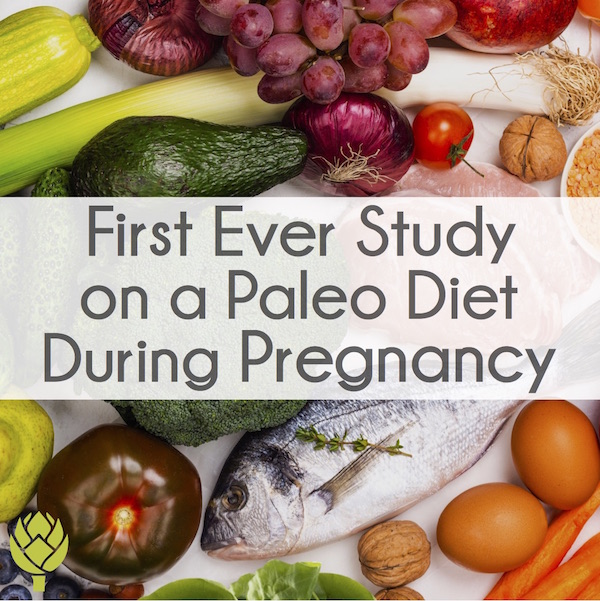

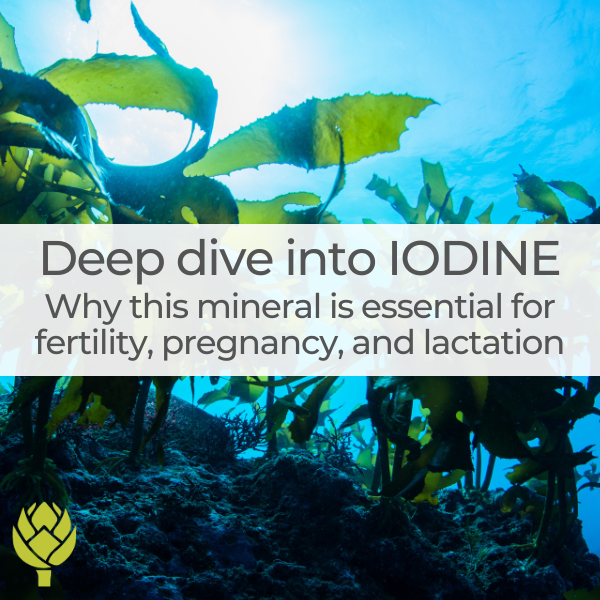
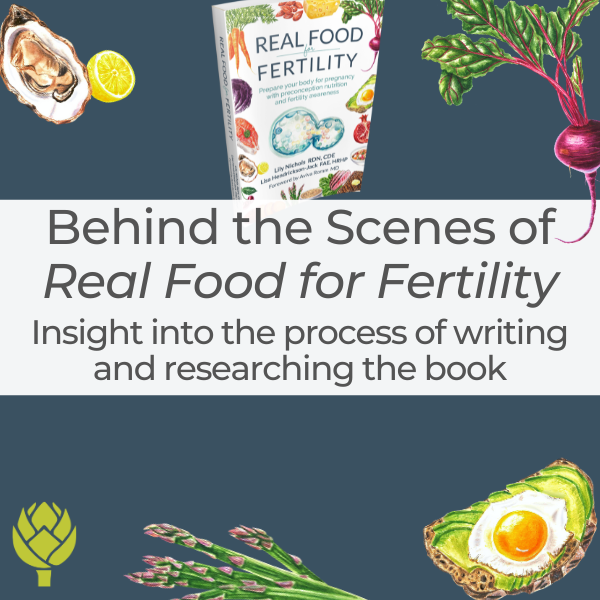
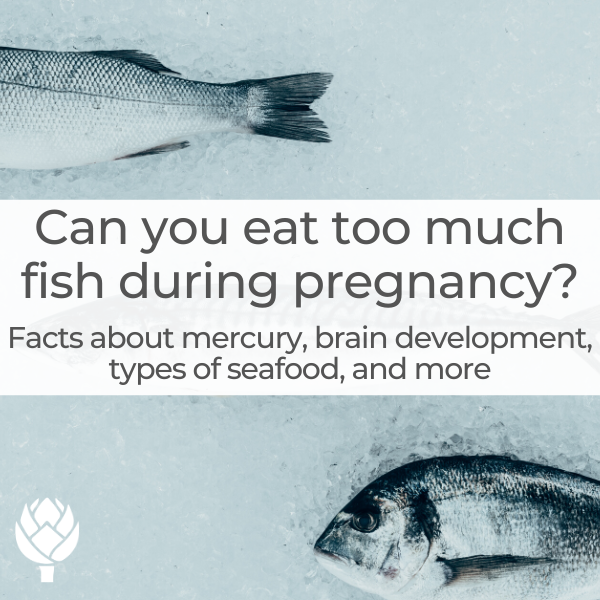
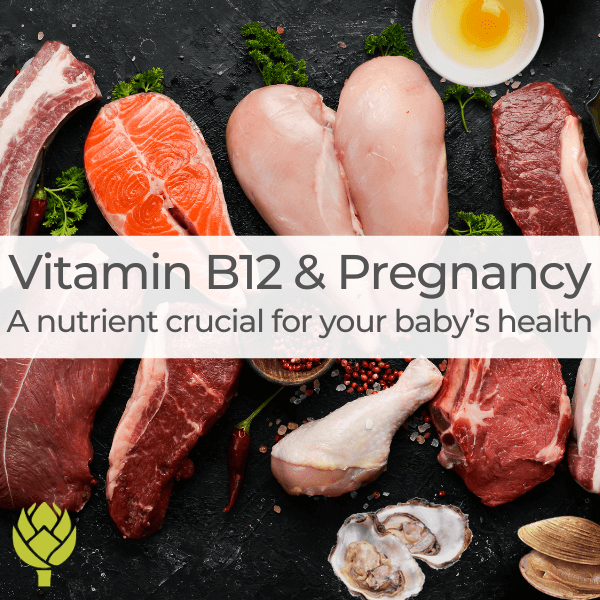



I’ve been eating relatively low carb since finding out I was pregnant (although a few weeks there we touch and go during the first trimester with nausea). I’ve been eating real, paleo-friendly foods
for the whole thing for sure.
I’ve had very few negative pregnancy symptoms and now I’m on week 21 and am not getting any of the insatiable hunger I was told to expect in the 2nd trimester. I feel totally normal hunger-wise.
I gained about 15lbs the first month of pregnancy due to sheer hormones, there was no dietary change whatsoever. After that everything has leveled out and I’m only growing in my belly where the baby is growing. I have a ton of energy and am doing my normal HIIT/strength training workout routines minus serious jumping/gymnastics.
I’ve been in and out of ketosis and feeling great.
Homemade jello with grassfed gelatin and no added sugar to the juice is my go-to ‘sweet food’ which is the most carb-y thing on the table. I reach for that instead of ice cream and hope it will help with stretch marks. I like to add strawberries or blueberries to it.
I was eating a ketogenic diet before becoming pregnant. I wasn’t able to maintain it in the first trimester – so many food aversions! But once I hit the second semester, I was eating everything in sight and it showed. I was gaining weight rapidly. I failed the glucose tolerance test and was diagnosed with gestational diabetes. I read Real Food for Pregnancy and immediately made some huge changes to my diet. I was able to control my post-prandial blood sugar fairly well just with dietary changes, but my doctors were still worried about my fasting glucose and prescribed insulin. Eventually, I was injecting myself four times a day with small amounts of insulin. Despite that, by following your guidelines, my weight gain almost halted completely. My daughter was born full-term, 6 pounds 6 ounces. With gestational diabetes! Everyone was shocked – they estimated she would weigh over 8 pounds! Not only was she tiny, her blood sugar was perfect every time they tested. She’s still a skinny baby at three months but her growth is on target and I’m hoping she won’t be plagued by a lifetime of obesity (like one nurse warned me when I was diagnosed with GD). Thank you so much for all you do! Now that I’m back on keto I’m dropping the pregnancy weight rapidly and I feel so much better. My husband and I are discussing a modified paleo diet for our daughter as she gets old enough to eat purees and solids.
Thank you for sharing your analysis and take on this study! Before and during my most recent pregnancy (my fourth) I ate a real food diet with minimal grains and legumes that was completely gluten free (celiac with other auto immune conditions here). I focused more on nutrient dense foods including plenty of red meat, eggs and dairy.
I followed your recommendations after reading your book Real Food for Pregnancy and had my healthiest pregnancy by far! I felt great and gained the least out of all of my pregnancies. I also had the best postpartum recovery this time around.
Thank you for all you do!
Thank you, Lily! I followed a paleo diet during pregnancy (and for years prior) and failed the first glucose screening test and I truly believe it was because my body was not prepared to process that much sugar at once as it didn’t have to. I carb loaded for days (still focused on quality carbs like almond flour pancakes, dates, root veggies galore) and passed the second glucose 3 hour long test with flying colors. Heavily in part to understanding the science because of your book! I wish there was another option available to everyone but I had to drink the yucky glucola to deliver in the location I wanted.
Thank you for your work!
We follow a mostly paleo diet at my house and have for years due to my husband’s auto immune disease. Pre-pregnancy, our exceptions included dairy (cheese, sour cream, cream, and half & half) and sprouted sourdough bread at home, with the occasional splurge for a bakery croissant or something of that nature (definitely NOT paleo) when out to eat or at a non-paleo friend’s house.
During pregnancy, especially during the first trimester, I had a big aversion to hot foods (it was the middle of a BRUTAL summer this year) and cooked veggies. I ate a lot of salad, chicken salad, pimento cheese, and cereal (which I hadn’t eaten in years!). It was sprouted cereal for the most part, or at least not your overly sugared “regular cereal” from the “regular grocery store.” I also reintroduced grass-fed milk and drink that in addition to unsweetened almond milk, as well as unsweetened peanut butter in hopes of avoiding as many potential allergy situations as possible.
I’m 33 weeks now. I have gained 25 pounds during my pregnancy. I passed my gestational diabetes test with “flying colors.” I’m 38, so technically “at-risk” because of my age. However, my doctor says I have a very “uncomplicated pregnancy,” so I am very thankful!
I don’t “eat for two” and I find my diet keeps me pretty satisfied hunger-wise. I plan on returning to my previous diet once baby comes, but am going to inquire with my doctor about short-term keto to recalibrate and lose baby weight once baby comes. I plan on breastfeeding, so I’m not sure if this is the right path just yet, but we will see.
We will focus on a real foods, mostly paleo approach with our child (while also trying to prevent any allergies). We will bake goodies with almond flour and maple syrup when the time comes, but he will be allowed to eat “regular” birthday cake at friend’s parties and things like that. We find that approach works best for our family.
Thanks for your work! It has been extremely beneficial to our family!
I have been following a paleo diet for at least 5 years, although I agree with you, occasional grains and sugar is fine. Over the years I’ve found the balance that works for my body. I was diagnosed with gestational diabetes by the Glucola test. Since then I follow my normal paleo diet and my numbers are always under 120 one hour after eating, they are actually rarely above 110. I do indulge in the occasional desserts but I make sure I move afterwards and my blood sugar is still well controlled. I wonder how many pregnant women who eat the standard American diet but weren’t diagnosed by the glucola test are walking around with much higher numbers than me on a daily basis. It annoys me that I have to be labeled when technically my blood sugar is ALWAYS controlled. It is technically referred to as diet control gd. And my doctors have not given me any restrictions and don’t plan on inducing me. So really it’s more of a mental thing for me that I hate having that label.
I’m on week 15 of my first pregnancy. Been eating ca 85% paleo (I do what I can sensibly and knowingly, not organic and free range most of the time) for many years prior. I still tend to forget I’m expecting as I feel as great as before pregnancy 😀 I attribute it also to 10 years of Pilates (I’m a full time teacher with my own studio). So a combination of real food and very conscious movement/workout – I’m sure it will get me through gestation and beyond with flying colors 🙂
I’m in the first trimester of my second pregnancy. I’ve had hypo glycemic issues in the past (Controlled now by a mostly low carb, real food diet) so I knew the gluco drink would make me sick and I refused to do the test. One of the practitioners told me they would not keep me as a patient unless I did the drink. (Ugg!!). Thankfully, I stuck to my position and insisted there had to be another way to test for GD. Finally another midwife explained they could do a fasting test, have me eat a normal meal, and test again after. But I’d have to stay in their office the whole time, it would take over an hour, etc. It seemed they didn’t even consider or tell me about this option because it was “inconvenient”. I share this to say: for anyone following a low carb, real food diet, you likely DO have a Test option Other than the nasty drink, you may just have to fight a bit to get that option.
There’s a detailed section on screening tests for gestational diabetes and alternatives (covering all pros/cons) in Ch 9 of Real Food for Pregnancy.
Is there any resource where I could possibly join a study? I am not currently pregnant but planning on (hopefully) conceiving in the next year. I’ve always had up and down weight issues, but have seemed to finally figure out how to keep myself in check with a flexible low carb/paleo combo adjusted to my needs, with an active lifestyle. I would love to help contribute to some sort of study!
I wonder if the study accounted for how women took the glucose test? As someone who was completely paleo before/during my first pregnancy and more loosely during my second pregnancy, I steered clear of the traditional glucose test. I did an alternative test both times and had no issue. While my blood sugar likely was more stable, I still didn’t want to risk a false positive with the traditional way of testing. Just my thought.
Thank you for this article! I found it very informative and easy to understand. Two years ago, I began eating according to the guidelines of an anti-inflammatory diet (self-diagnosed hypothyroidism). This was on the heels of the birth of my seventh child. I am now nearing the birth of baby number eight, having adhered to this diet pretty closely. My nausea phase was noticeably more manageable, weight gain has been less (by ten pounds), and my usual (this is baby eight) aches and pains are significantly less, because I am not experiencing the normal inflammation. I have yet to see how it may or may not affect the actual delivery of baby, but I can tell you, avoiding certain inflammatory foods is a life saver. Thank you, again, for sharing!
I ate paleo after the first 16 weeks of pregnancy with one of my babies and when he was born the midwife said it was one of the largest and healthiest placentas she had ever seems. The umbilical cord was really thick! It seemed to help my energy levels since i also had 3 young children 6 and under. I want to stick to that diet but it is so much work!
That’s amazing! Thanks for sharing.
I have Hashimoto’s and am about to start to conceive for second baby. My doctor is recommending I stick with the paleo diet during pregnancy. I really appreciate all of this information! I’m hoping I can stick it out through 1st trimester because it’s done AMAZING things for my thyroid antibodies. I really appreciate you and the work you do Lily!
As someone with Hashimoto’s, I followed paleo diet getting pregnant with my second child. I couldn’t completely maintain it during pregnancy, I ate fermented dairy products. But I revert back to paleo after birth for a few weeks to reduce inflammation. We have raw milk now, so I have dairy a bit more often with no adverse side effects. Now with #3 on the way, I am a bit less strict, but I do have to be gluten-free/grain-free. I have always passed the glucose test every pregnancy, babies are under 8#, and we both do well postpartum.